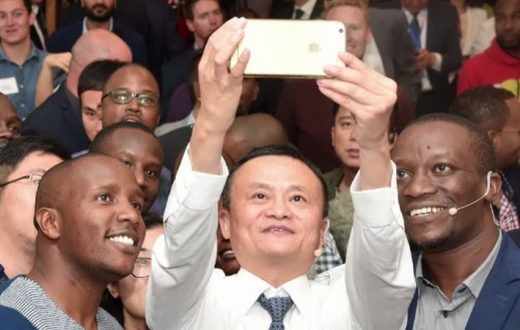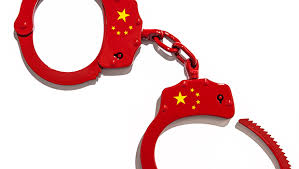Summary
A string of mysterious disappearances of Chinese nationals could signal that Chinese President Xi Jinping is taking his effort to consolidate power to new heights ahead of the next National Congress of the Communist Party in 2017. It appears that Chinese intelligence agents have recently carried out a number of renditions targeting Chinese citizens living abroad, including some who hold dual nationalities. Many of these renditions occurred in Thailand, though one took place in Hong Kong, where the “one country, two systems” principle legally bans Chinese intelligence services from operating.
If the disappearances were in fact secret renditions, they would mark a substantial shift in the behavior of Chinese intelligence services, which until now have not been known to engage in kidnapping or assassination campaigns beyond China’s borders. They would also point to great strain within China’s political system as Xi and those loyal to him move to centralize power by cracking down on dissent, increasing control over the media, calling for loyalty, and implementing an extensive anti-corruption campaign. As China’s social and economic challenges grow in the lead-up to the power shuffle slated to take place at the next Party Congress, the latest development could be a sign that Xi’s government will show less restraint and more assertiveness in its responses to stressors at home and abroad.
Analysis
Last summer, China launched a campaign against publications that it believed could “poison the hearts and minds” of China’s youth. At the time, Beijing reportedly identified several publishers in Hong Kong and Taiwan as the campaign’s primary targets.
A handful of other odd missing persons cases has further fueled speculation that Xi might be upping the ante in his quest to consolidate power. Bao Zhuoxuan, the son of a prominent human rights lawyer, was kidnapped in Myanmar in October 2015 while trying to flee to the United States. Li Xin, a former journalist for the China-based Southern Metropolis Daily in Pattaya, Thailand, disappeared not long after in January; Li fled China when Chinese agents pressured him to spy on activists, and he reportedly leaked confidential information on the Communist Party’s propaganda system. Finally, Chinese agents have allegedly tried to capture or kill Ling Wancheng, a businessman and the brother of former President Hu Jintao’s former aide, Ling Jihua, after failing to secure his deportation from the United States. (Ling Jihua is currently facing corruption charges that many believe to be politically motivated.) Ling Wancheng is thought to be in possession of a number of Chinese state secrets, including information on the country’s leaders and nuclear capabilities.
A Wider Struggle for Power
The renditions come at a time when the Party is taking steps to purge corruption from its political ranks. In 2014 and 2015, Beijing launched its respective Operation Fox Hunt and Skynet programs with the goal of repatriating Chinese fugitives on corruption charges and recovering their ill-gotten financial assets. Since the operations began, China has brought more than 930 nationals back within its borders, and agents belonging to its Ministry of Public Security — the organization in charge of the operations — operate in at least 56 countries.
While the operations include many legitimate cases, Xi’s critics have accused him of using them to persecute his political rivals and silence dissenters. In the face of these charges, the Chinese government has framed the programs — in part for its international audience — as a victory in its larger effort to respect the rule of law. Its media campaigns about the operations have included photographs of fugitives marching off planes and into the custody of uniformed Ministry of Public Security officers.
Though the latest renditions can be interpreted, in some respects, as the next logical step in an intensifying crackdown on Beijing’s part, their considerable departure from China’s traditional methods of repatriating fugitives should not be ignored. In the past, Beijing has taken great care to try to allay international concerns about its respect for the rule of law. But this time seems to be different. China’s attempts to mask the true nature of its renditions, or give them the appearance of legitimacy under international law, have been halfhearted at best. In fact, Chinese state media have shown more interest in airing the confessions, which themselves seem formulated, to domestic audiences. This suggests that Beijing’s primary goal is to send a message to viewers at home rather than to those abroad.
And that message is clear, to those who can read between the lines: Anyone who tries to discredit the Chinese leadership by using Hong Kong’s once-untouchable publishing houses will be stopped. Such a warning hints at the unease that lies beneath the surface of Chinese politics, and perhaps the existence of strong factions that may be angling to challenge Xi’s grip on power. Given when the renditions began, it is likely this political struggle has been intensifying since mid-2015, even as Xi escalated the anti-corruption campaign meant in part to suppress any hostile opponents.
With the renditions, Beijing has made it clear that it is willing to accept serious blows to what were previously high-priority objectives, including cultivating its image as a legitimate enforcer of law and framing the one country, two systems model as a viable avenue for peaceful reunification with Taiwan. However, the benefits of these sacrifices are confined to a small group — Xi’s political network — as it fends off challengers ahead of the 2017 Communist Party Congress, where Xi’s presidential successor may be named. As the short-term interests of this narrow unit begin to increasingly outweigh the interests of the country as a whole, China may begin to make erratic moves that would otherwise be out of character for a Communist Party ruled by consensus. Renditions could therefore be just one of many long-standing taboos that will be broken in the struggle for political survival in Beijing — a competition that appears to be much more intense than China’s placid exterior reveals.







